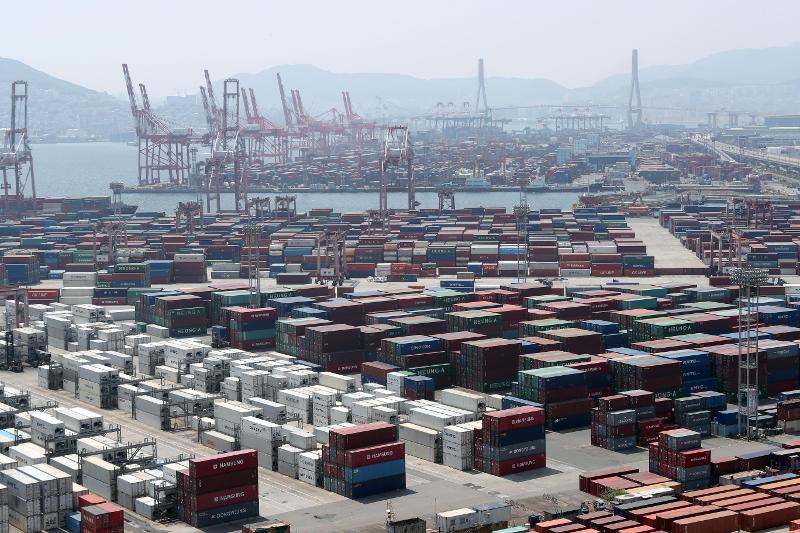
By Kim Hyelin and Lee Jihae
The Organization for Economic Cooperation and Development (OECD) has projected Korea's real GDP this year to contract 1.2% without a second wave of the novel coronavirus disease (COVID-19) and 2.5% if a resurgence hits.
The OECD called its forecast for Korea "considerably milder than in other OECD countries" including China, Russia, Brazil, India and Indonesia.
The Ministry of Economy and Finance on June 10 announced the OECD Economic Outlook for the year's second half, with predictions for the fourth quarter if a second wave of the coronavirus hits and if it does not.
The OECD spoke of unprecedented uncertainty due to COVID-19, saying, "Korea was among the first countries hit by COVID-19," but adding that "due to an effective strategy to contain the spread of the virus, the government limited the damage to the domestic economy and output is shrinking less than in any other OECD country."
The report called Korea a "notable outlier" as Korea contained the coronavirus "without widespread confinement." It said the outbreak surged from mid-February in Korea but quickly stabilized from March and showed a low fatality rate due to "innovative methods."
The OECD cited supplementary budgets that allowed loans to the self-employed and small and medium businesses to stabilize liquidity and emergency support to help households.
"The government has introduced unprecedented measures to mitigate the pandemic's impact," it added.
Unemployment rose, especially among non-regular workers, due to declines in income and private consumption, the outlook said, but additional measures were expected for households and smaller businesses based on fiscal stability.
To "enhance equity and boost the economy," additional income support will focus on those with low income," the OECD said. Its outlook added that "additional support for SMEs (small and medium enterprises) and firm restructuring may be necessary" and that "boosting investment in renewable energy and clean technologies would help achieve a sustainable recovery."
The OECD forecast negative growth for leading global economies, with the U.S. to see contraction of 7.3% without a second wave and 8.5% with, China 2.6% and 3.7%, and Japan 6.0% and 7.3%, respectively.
"The global economy is now experiencing the deepest recession since the Great Depression in the 1930s," the report said. In either scenario with the coronavirus, however, the OECD said the world will gradually see recovery by next year after bottoming out in this year's second quarter.
kimhyelin211@korea.kr
Most popular
- 2 Egyptian sisters reflect on 10 years as Honorary Reporters
- Korea Welcome Week for foreign tourists set from April 25-May 16
- Korea.net welcomes 2025 K-influencers, Honorary Reporters
- Actor Bae Doona's first romcom in decade to hit theaters in May
- 2025 Honorary Reporter class pledges to spread 'real Korea' worldwide
